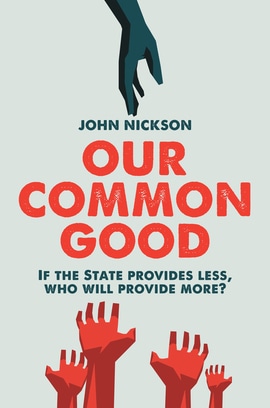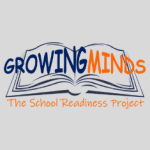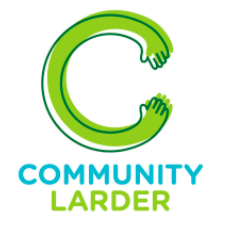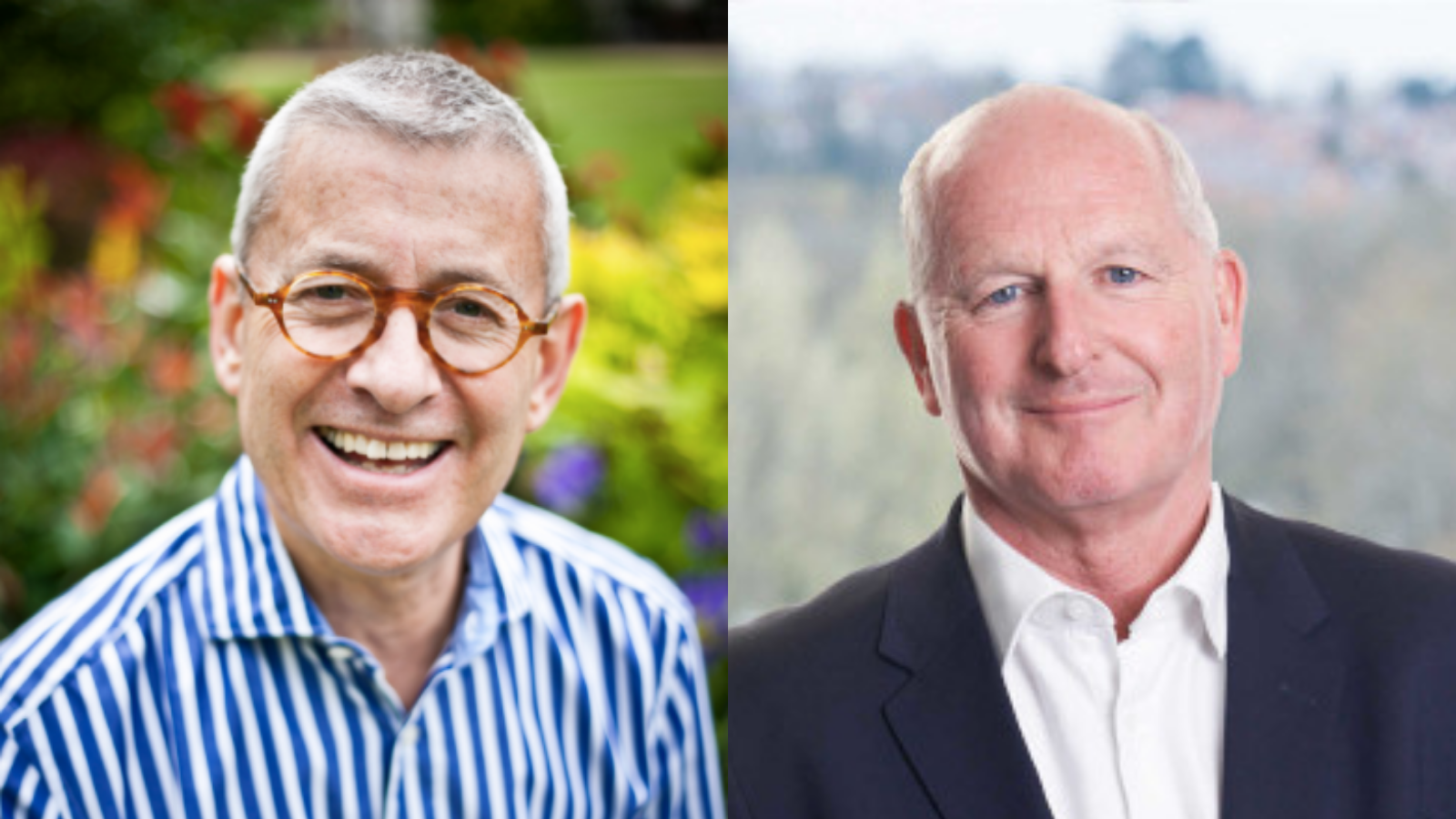Want to find out about another new approach to philanthropy? Read our Impact Investing series…
Reinventing philanthropy for today.
We learn about a concept seeking to change the way Britain thinks about giving in response to a growing need for renewal and regeneration.
A new charitable body is looking to reignite Britain’s philanthropic tradition, leveraging the money, skills, networks and knowledge of wealthy individuals, foundations and corporations to catalyse social change in some of the country’s most socially excluded communities.
John Nickson (left) and Paul Donovan, the co-founders of Our Common Good.
The initiative – Our Common Good – is the brainchild of philanthropists John Nickson and Paul Donovan, and began in 2018. Its goal is:
“…to help create a more cohesive, equitable and prosperous society through new philanthropic and social investment in Britain’s left behind communities. By creating positive social impact via local projects that can be scaled up and replicated elsewhere, we can demonstrate what is possible and thereby promote innovative best practice and influence national policy”.
Emerging from what John calls a ‘pilot and private phase funded by us’, Our Common Good has already co-created and supported five transformative community projects. In this article, we speak to the founders to take you through the journey of Our Common Good – from inception to fruition – and how philanthropy can help to stimulate and find innovative and sustainable solutions to societal problems that are beyond the capacity of the state or any of the sectors acting on their own.
How did the idea emerge?
John Nickson is a fundraiser turned philanthropist. He was director of fundraising for some of Britain’s leading national institutions, including the British Council, English National Opera, Royal Academy of Arts and Tate.
 After retiring from Tate he began giving and campaigning to increase philanthropy in Britain. Encouraged by the philanthropists he had worked with – themselves frustrated at the lack of a philanthropic culture in modern Britain – John wrote two books extolling philanthropy.
After retiring from Tate he began giving and campaigning to increase philanthropy in Britain. Encouraged by the philanthropists he had worked with – themselves frustrated at the lack of a philanthropic culture in modern Britain – John wrote two books extolling philanthropy.
The second of these, Our Common Good, which lends its name to the new initiative, emerged from a conversation between John and a leading philanthropist in 2014:
“We were talking about how philanthropy could contribute to the regeneration of the Olympic site in east London. He commented on the emerging dynamic that state funds were dwindling while the demands on the not-for-profit sector increased. He said a new mindset and template were needed. It’s an issue that I couldn’t get out of my mind. I started asking myself the question – if the state provides less, who will provide more?”
 In pursuit of an answer, John’s research led to conversations with over a hundred people around the country, looking at how local collaboration, underpinned by a solid philanthropic catalyst, could provide a valuable and increasingly essential complement to government funding and make a demonstrable and sustainable social impact.
In pursuit of an answer, John’s research led to conversations with over a hundred people around the country, looking at how local collaboration, underpinned by a solid philanthropic catalyst, could provide a valuable and increasingly essential complement to government funding and make a demonstrable and sustainable social impact.
He wrote about Onside Youth Zones as a prime example of philanthropy convening local forces and redefining the relationship between the public, private and not-for-profit sectors. Initially based in Bolton, it was this collaborative strategy that helped Onside Youth Zones to become a national charity.
John’s book found its way into the hands of Paul Donovan, a highly respected CEO whose various corporate posts have seen him turn around the fortunes of a number of household brand names. Inspired, Paul connected with John and the duo decided to combine their skills and resources to put the book’s theory into practice.
The new initiative is named after John’s second book, above.
How does Our Common Good work?
What distinguishes Our Common Good is its holistic approach. While it is influenced by methodologies such as asset-based community development and participatory grant-making, its venture philanthropy model enables innovation, experimentation and taking considered risks with pilot programmes that have the potential to grow.
Our Common Good’s aim is to drive sustainable social impact by creating strong networks of local organisations, councils and other stakeholders across the sectors. The partners agree to focus upon specific challenges and to collaborate in order to solve them. Our Common Good provides seed funding and also professional advice, thereby helping to build the capacity of smaller charities.
Further injections of philanthropic funding or social investment are sought after the projects have been defined with the aim that they will ultimately become self-sustaining and be entirely owned by the community, charity or social enterprise running them. The intention is that community networks will grow beyond the bounds of their initial projects, inspiring local collaboration for other regeneration projects in the future.
Our Common Good also wants to influence national policy. The government’s recent ‘Levelling-Up’ agenda demonstrates that the ground may be fertile for such an initiative, inspiring a rethink of how we support historically neglected communities. Says John,
“People are finally waking-up to the fact that some of our towns and cities have fallen way behind more prosperous parts of the country and that there are also hidden depths of poverty within wealthy counties. By proving that our concept works, we can change the way the public sector thinks about supporting local communities. By working with others, the public sector can become an enabler as well as a provider. We can also demonstrate to philanthropists and other funders that through collaboration they can help to enable positive and sustainable social change.”
The founders are passionate believers that people know the solutions to their own problems and that enabling them to realise these solutions is where the focus should be. But despite Our Common Good’s encouraging start, the duo remain realists. Paul speaks to this:
“Our venture philanthropy model allows us to innovate and experiment, take considered risks and learn from pilot programmes so that they can be developed, replicated and expanded. We know we will fail sometimes, but that is to be expected. In fact, if we’re not failing from time to time, we’re probably not working hard enough to push the boundaries of new ideas.”
What are the current projects?
Our Common Good has developed five pilot schemes across the UK so far. We look at two of these:
Growing Minds
 The first project established by Our Common Good is ‘Growing Minds’, a pilot initially developed and operating in Oxfordshire, designed to tackle educational inequality in rural parts of the county. It aims to ensure that young children enter primary education on a par with their middle class peers rather than being up to five months behind and never catching up. The concept emerged from discussions with Oxfordshire Community Foundation and other local organisations to determine priority needs. Says John,
The first project established by Our Common Good is ‘Growing Minds’, a pilot initially developed and operating in Oxfordshire, designed to tackle educational inequality in rural parts of the county. It aims to ensure that young children enter primary education on a par with their middle class peers rather than being up to five months behind and never catching up. The concept emerged from discussions with Oxfordshire Community Foundation and other local organisations to determine priority needs. Says John,
“Because Oxfordshire is such a wealthy county, people often consider that it doesn’t have any poverty or educational disparity. Regrettably, this isn’t true; the poverty is simply more invisible. According to the latest indices of Multiple Deprivation in 2019, Oxfordshire has 17 neighbourhood areas among the 20% most deprived nationally, an increase from 13 in 2015.”
Following consultations, Our Common Good funded the appointment of a manager to research, develop and define a project. The project manager brought together a delivery team of ten local organisations, including charities and local and statutory authorities to run the project under the umbrella of Oxfordshire Community Foundation.
Our Common Good has proved that it is possible to persuade ten organisations to abandon their silos and work together with a single aim. Throughout its seven year duration, the project will support over 800 young children and their families, helping to improve primary school readiness in some of Oxfordshire’s poorest communities. As a result of progress to date, Growing Minds is now being adopted in other parts of the country.
Community Larders
A second project being incubated by Our Common Good is Community Larders, a social enterprise and community-based membership programme operated by SOFEA, a food and education charity.
Drawing on SOFEA’s food surplus operation, in partnership with FareShare, the Larders address food insecurity for those struggling to make ends meet. Members can save up to £150 on their monthly food bill.
 But the Larders provide more than discounted food. Working with local partners in community centres and churches, Larders provide a space where people can meet knowing they will be treated with dignity and respect. Additional support is available to address low-level mental health concerns, finance and debt advice, working with Nationwide to set up bank accounts and ensuring that members get the lowest tariffs on utilities. A digital inclusion programme is now also starting and there are plans to bring in employability courses to help people into work.
But the Larders provide more than discounted food. Working with local partners in community centres and churches, Larders provide a space where people can meet knowing they will be treated with dignity and respect. Additional support is available to address low-level mental health concerns, finance and debt advice, working with Nationwide to set up bank accounts and ensuring that members get the lowest tariffs on utilities. A digital inclusion programme is now also starting and there are plans to bring in employability courses to help people into work.
With Our Common Good’s funding and strategic advice, the scheme has grown from one larder to 17, with another 19 in the pipeline. Again, the aim here is to use a replicable model to inspire a larger roll out across other parts of country. As Paul explains, generating community collaboration and local pride is key to success for the Larders:
“The membership scheme is vital so that people know they are not receiving charity. Instead they feel invested because they are participating in a fair transaction for their groceries while helping to tackle the issue of food waste. This creates a sense of pride in belonging to a Larder.”
What’s next for Our Common Good?
Since beginning just three years ago, Our Common Good has created and transformed social change projects in a number of communities across Britain. The concept is proving successful in highlighting that place-based regeneration requires a combination of philanthropic investment, strategic management advice, skills development, cross-sector partnerships and strong, durable networks. Moreover, the first £95,000 donated by John and Paul has leveraged a further £800,000 in funding from other sources.
The principle that really makes the concept stand out as a fresh approach to philanthropy is its commitment to curate community networks. This aspect lays the ground for project-based solutions to social problems to take root and flourish.
Our Common Good continues to work on its five current projects, providing funding, advice and connections to help them scale. John, Paul and executive director Paddy Radcliffe are now seeking donors, partners and collaborators to help them incubate more projects across the UK as part of their journey to take Our Common Good national and reinvent philanthropy for today.
If you would like to speak to John, Paul and Paddy to find out more or become involved in Our Common Good, please email communications@beaconcollaborative.org.uk
